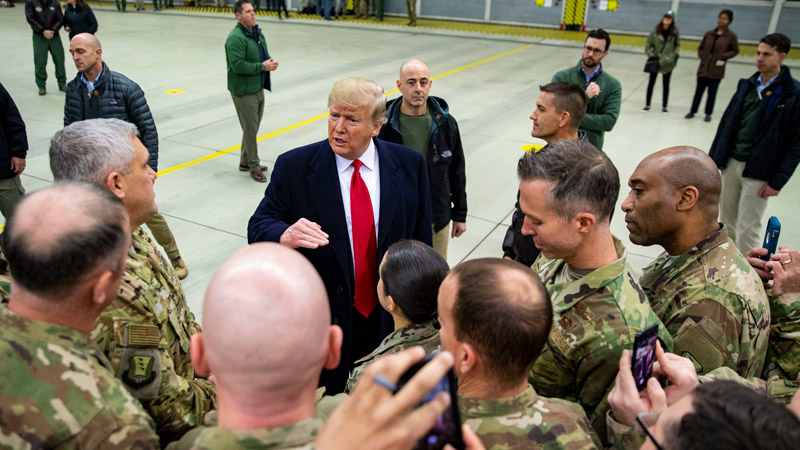“We Don’t Want to Be Seen as a Gestapo”: National Guard Troops Concerned About Trump’s Deportation Plans

(Al Drago for The New York Times)
Concerns are growing among National Guard troops about their potential role in implementing President-elect Donald Trump’s controversial mass deportation plans. Some worry the mission could mirror a “Gestapo”-like operation enforcing far-right immigration policies against undocumented individuals.
Politico reported Sunday that some of the 435,000 National Guard members fear being drawn into a legally ambiguous mission to deport individuals from communities where many guardsmen already serve as sheriffs, police officers, or firefighters.
Border Czar Tom Homan, who will oversee the initiative, stated his top priority would be targeting “criminals and gang members.” According to reports, Homan initially planned to launch raids in Chicago, a city with a large immigrant population. However, those plans may be reassessed following leaks to the media.
In November, NBC News highlighted Trump’s confirmation of a Truth Social post suggesting a willingness to declare a national emergency and deploy military resources for deportations. Trump shared the post with a simple affirmation: “TRUE!!!”

Republican governors have expressed their intent to deploy state-run National Guard units to support Trump’s deportation efforts, which he promised would begin on “day one” of his presidency. Trump’s term officially starts Monday.
However, resistance is expected in Democratic-leaning states. Politico reporters Jack Detsch, Liz Crampton, and Lisa Kashinsky noted that “blue states with control of their own Guard could simply refuse to go along.”
If states resist, Trump has several options. He could leave the National Guard under state control but provide federal funding for the deportation mission, allowing governors to maintain authority over their troops. Alternatively, he could activate the Guard to federal status, enabling him to deploy troops across state lines and assert greater control over their operations.
A senior military official, quoted anonymously in the Politico report, expressed apprehension among Guard members, saying they “don’t want to be seen as” part of a “Gestapo” enforcing mass deportations.
Despite these concerns, Trump remains adamant about fulfilling his campaign promises, viewing his election victory as a mandate to proceed. Central to his campaign was the pledge to execute mass deportations, close the southern border with Mexico, and end “birthright citizenship,” a constitutional right enshrined in the 14th Amendment.
The debate over the Guard’s role underscores the legal and ethical complexities of Trump’s immigration agenda as he prepares to take office.


